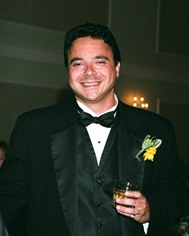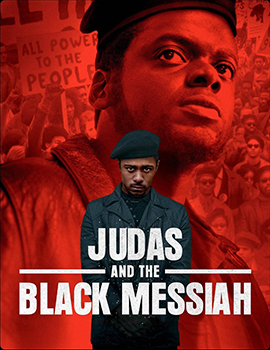Whether as a snapshot of a city under siege or a political thriller based on past events, “Judas and the Black Messiah” works best by condensing chronology to let its strong ensemble of actors bring the people they’re portraying to life.
“Judas” begins with the Chicago riots following Martin Luther King, Jr.’s assassination. Fearing an uprising, J. Edgar Hoover (Martin Sheen) implores an audience of FBI agents to target and tear down the Black Panther Party, an organization aimed at ending police brutality against African-Americans, and its Illinois chapter chairman Fred Hampton (Daniel Kaluuya).
One of the agents listening to Hoover is Roy Mitchell (Jesse Plemons). When a black car thief impersonating an FBI agent named Bill O’Neal (LaKeith Stanfield) lands in Mitchell’s lap, Hoover’s plan seems like a premonition. With O’Neal having no strong political convictions and a strong desire to not want to be a convict, Mitchell gives O’Neal an offer he can’t refuse: play ball with the FBI as an informant or do jail time. O’Neal agrees to play ball and joins Hampton’s Panther chapter.
As fate would have it, O’Neal quickly accomplishes what Mitchell wants: he gets close to Hampton by becoming his driver. While O’Neal feeds Mitchell useful information for money, he also finds Hampton to be unlike his appearance. Instead of a militant radical screaming for revolution, O’Neal sees Hampton as a redeemer who wants to unite a diverse group of people to better their community. Accompanying Hampton unarmed into rival gang headquarters, O’Neal witnesses Hampton’s charisma as a catalyst. Hampton creates a Rainbow Coalition consisting of diverse groups whose infighting is replaced with helping one another. Giving free breakfast to neighborhood kids is only the beginning- Hampton wants free education and healthcare too.
Where O’Neal sees Hampton’s benevolence, Mitchell sees malevolence. Mitchell warns O’Neal that the Panthers are terrorists as dangerous as the KKK. O’Neal sees this danger when the Panthers, mistrustful of moles placed within their ranks by the Feds, torture and kill a Panther/believed informant. When Mitchell gets a directive regarding Hampton and needs O’Neal to complete the task, O’Neal finds himself in a quandary: follow his heart or risk losing his life.
Director and co-writer Shaka King gives “Judas” a good structure to the transpiring events, but the film’s backbone belies its beating heart: a well-rounded ensemble cast where the leads stand out. Kaluuya as Hampton may have the flashier role with spirited speeches, but he also finds Hampton’s softer side in his romantic relationship with Deborah Johnson (terrifically played by Dominique Fishback). As O’Neal, LaKeith Stanfield gives another grounded performance as a man wrestling with inward and outward betrayal and, as Agent Mitchell, Jesse Plemons fashions another character whose smiling face hides a stern interior- one of a cold, controlling company man.
Whatever your feelings regarding the radical, revolutionary Black Panther Party, “Judas and the Black Messiah” gives the faction a face with an intimate portrait of its people. While emphasizing Hampton’s message of strength in unity providing healing over hurt may feel like a surprising turn, the film’s actors keep “Judas’” rocky road straight.

